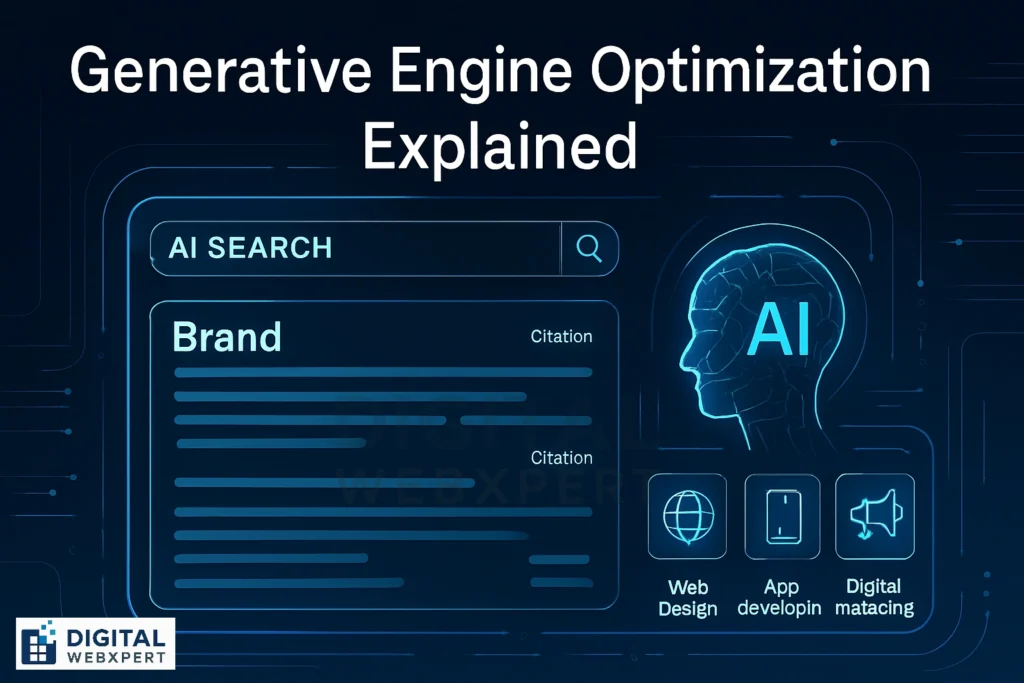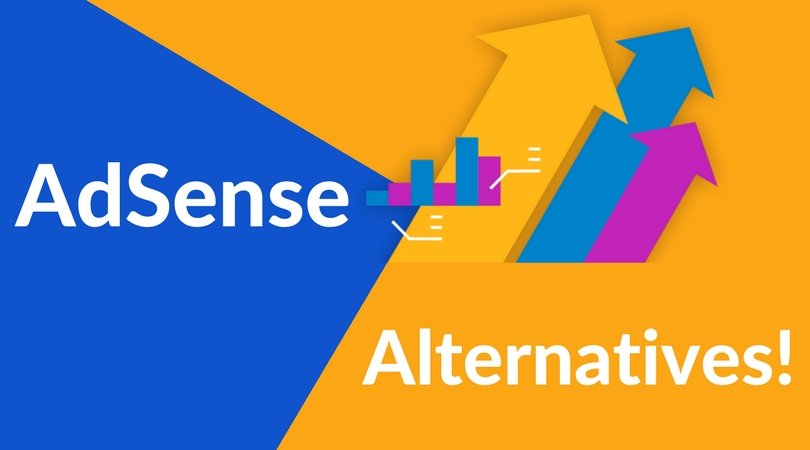Introduction: Why Generative Engine Optimization Matters in 2025
The way people search online is changing — fast. Traditional SEO, once dominated by keyword targeting and backlinks, is evolving into Generative Engine Optimization (GEO). With AI‑powered search engines like Google SGE (Search Generative Experience), Bing Copilot, and ChatGPT Search Plugins, the rules of visibility have shifted.
Instead of simply matching keywords, AI search engines interpret intent, context, and meaning to deliver conversational, synthesized answers. This means your brand’s visibility now depends on how well your content is understood and recommended by AI — not just indexed by algorithms.
For small business owners, startup founders, freelance designers, marketing teams, eCommerce sellers, agencies, and nonprofits, mastering GEO is no longer optional. Whether you’re in web design, app development, digital marketing, or offering all‑in‑one solutions, the brands that adapt to AI search will dominate the next decade.
1. What is Generative Engine Optimization (GEO)?
Generative Engine Optimization is the process of structuring, formatting, and enriching your content so that AI‑powered search engines can easily find, understand, and recommend it in their generated answers.
Unlike traditional SEO, which focuses on ranking in a list of blue links, GEO aims to position your brand as the AI’s chosen source when it generates a direct answer to a user’s query.
Key Differences Between SEO and GEO:
| Feature | Traditional SEO | Generative Engine Optimization |
|---|---|---|
| Search Output | List of ranked links | AI‑generated answers with citations |
| Ranking Factors | Keywords, backlinks, technical SEO | Contextual relevance, semantic depth, trust signals |
| Goal | Appear on page 1 | Be the AI’s primary cited source |
| User Interaction | Click to visit site | AI summarizes your content in‑line |
2. Why GEO is Critical for Web Design, App Development & Digital Marketing
If your business offers web design, app development, or digital marketing, GEO is a game‑changer because:
- Web Design Agencies can showcase expertise in AI‑curated design trends, UX best practices, and responsive development.
- App Developers can appear in AI recommendations for “best mobile app solutions” or “custom app development for startups.”
- Digital Marketing Teams can dominate AI‑generated lists of top strategies, tools, and agencies.
- All‑in‑One Solution Providers can be positioned as the go‑to resource for businesses seeking integrated services.
3. How AI Search Engines Choose What to Show
AI search engines like Google SGE and Bing Copilot use Large Language Models (LLMs) trained on vast datasets. They prioritize:
- Authority & Trustworthiness – Verified expertise, strong brand presence, and credible citations.
- Structured Data – Schema markup, FAQs, and metadata that help AI parse your content.
- Semantic Relevance – Content that answers the query in depth, not just with keywords.
- Freshness – Updated, timely information.
- Engagement Signals – Content that keeps users reading, clicking, and interacting.
4. GEO Strategies to Get Your Brand Seen in AI Search
A. Optimize for Conversational Queries
AI search thrives on natural language. Instead of targeting “web design India,” target “What’s the best web design company in India for startups?” and answer it directly.
Action Steps:
- Use question‑based headings (H2/H3).
- Include long‑tail keywords with natural phrasing.
- Write in a clear, conversational tone.
B. Build Topical Authority
AI engines prefer subject matter experts. If you’re in app development, publish a series of in‑depth guides covering:
- Mobile app UX design
- Cross‑platform frameworks
- App store optimization
- Security best practices
C. Use Structured Data & Schema Markup
Implement schema for:
- Articles
- Products
- Services
- FAQs
- Reviews
This helps AI understand your content’s context and increases the chance of being cited.
D. Create Multi‑Format Content
AI search pulls from text, images, videos, and even code snippets. For example:
- A web design agency can share Figma templates.
- An app developer can post GitHub code samples.
- A digital marketer can publish infographics and case studies.
E. Leverage AI‑Friendly Content Structures
- Short paragraphs for easy parsing.
- Bullet points for clarity.
- Numbered lists for step‑by‑step guides.
- Clear headings with focus keywords.
F. Build Brand Mentions Across the Web
AI search engines look for brand presence beyond your site:
- Guest posts
- Podcast appearances
- Social media engagement
- Industry directories
5. GEO Keyword Strategy for 2025
For web design, app development, digital marketing, and all‑in‑one solutions, your GEO keyword plan should include:
Primary Keywords:
- Generative Engine Optimization
- AI Search Optimization
- Web Design
- App Development
- Digital Marketing
- All‑in‑One Solutions
Secondary Keywords:
- AI SEO Strategies
- AI Search Ranking
- AI Content Optimization
- AI‑Powered Marketing
Example Keyword Integration:
“At Digital WebXpert, we combine web design, app development, and digital marketing into all‑in‑one solutions optimized for Generative Engine Optimization, ensuring your brand is visible in AI search results.”
6. GEO Content Blueprint for Your Brand
Here’s a repeatable content framework:
- Identify AI‑Searchable Topics – Use tools like Google SGE preview, Bing Copilot queries, and ChatGPT prompts.
- Create Comprehensive Guides – 1500+ words, covering every angle of the topic.
- Add Structured Data – FAQ schema, HowTo schema, Product schema.
- Include Rich Media – Images, videos, infographics.
- Update Regularly – Keep content fresh for AI indexing.
7. GEO for eCommerce & Service Businesses
If you run an eCommerce store or B2B service:
- Create AI‑friendly product descriptions with benefits, specs, and FAQs.
- Publish comparison guides (“Shopify vs WooCommerce for small businesses”).
- Offer interactive tools (calculators, quizzes) that AI can reference.
8. Measuring GEO Success
Track:
- AI Search Citations – Are you being mentioned in AI‑generated answers?
- Organic Traffic from AI Search – Use analytics tools that track AI referrals.
- Engagement Metrics – Time on page, scroll depth, click‑through rates.
9. The Future of GEO
By 2026, expect:
- Voice‑First AI Search – Optimize for spoken queries.
- Hyper‑Personalized AI Results – Tailor content for niche audiences.
- AI‑Generated Brand Summaries – Your brand bio will be AI‑written from your content.
Conclusion
Generative Engine Optimization is the **next frontier of digital



